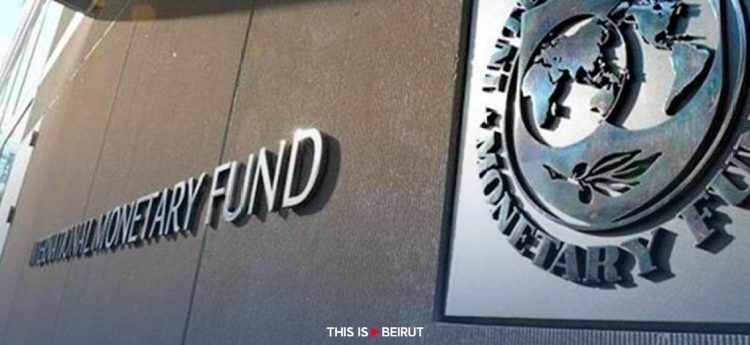
The recent mission report from the International Monetary Fund (IMF) concluded that Lebanon’s economy and population are still heavily burdened by the lack of action on “essential” economic reforms. This situation has been further exacerbated by the negative impacts of the war in Gaza, conflicts on Lebanon’s southern border, and the ongoing refugee crisis.
While there has been some progress in reducing inflation and stabilizing the exchange rate, largely due to the Central Bank’s decision to cease foreign currency financing and subsidies, as well as the elimination of the budget deficit, these reforms are deemed insufficient for a meaningful recovery. The absence of a credible and financially sustainable strategy for the banking system continues to impede economic growth and hinder deposit recovery, while also promoting an informal “cash economy” and increasing the risk of illicit activities.
The IMF delegation, led by Ernesto Ramirez Rigo, who oversees the reforms required of Lebanon under the preliminary agreement signed in April 2022 (known as the Staff-Level Agreement or SLA), was in Lebanon on a four-day visit.
Ramirez Rigo highlighted the dire economic situation in Lebanon, with exceptionally high levels of unemployment and poverty, alongside severe disruptions in essential public services. Despite limited resources, Lebanon still grapples with hosting the highest number of refugees per capita globally. The recent conflicts in Gaza and Lebanon’s southern border have worsened this situation, leading to further displacement and damage to infrastructure, agriculture, and trade in the affected regions. Combined with the decline in tourism, these conflicts have created significant uncertainty about Lebanon’s economic future.
Efforts to mobilize VAT and customs revenues by adjusting the customs dollar to the market exchange rate have helped reduce the estimated budget deficit for 2023 to nearly zero. Joint efforts between the Central Bank and the Ministry of Finance have also led to some accumulation of foreign exchange reserves. However, Ramirez Rigo acknowledged that these measures alone are insufficient to lift Lebanon from its crisis.
While the timely approval of the 2024 budget marked a significant step forward, greater efforts are needed to strengthen public finances. The 2025 budget should aim for a zero deficit through more ambitious fiscal reforms, including enhancing revenue mobilization, improving compliance, and reprioritizing spending to address critical social and infrastructure needs. Ramirez Rigo also criticized the limited governance, transparency, and accountability in Lebanon, highlighting challenges in obtaining quality, timely economic data for informed policymaking.
In conclusion, Ramirez Rigo affirmed the IMF’s commitment to supporting Lebanon. Article IV discussions are scheduled for September 2024 to assess progress on crucial economic and financial reforms.
While there has been some progress in reducing inflation and stabilizing the exchange rate, largely due to the Central Bank’s decision to cease foreign currency financing and subsidies, as well as the elimination of the budget deficit, these reforms are deemed insufficient for a meaningful recovery. The absence of a credible and financially sustainable strategy for the banking system continues to impede economic growth and hinder deposit recovery, while also promoting an informal “cash economy” and increasing the risk of illicit activities.
The IMF delegation, led by Ernesto Ramirez Rigo, who oversees the reforms required of Lebanon under the preliminary agreement signed in April 2022 (known as the Staff-Level Agreement or SLA), was in Lebanon on a four-day visit.
Ramirez Rigo highlighted the dire economic situation in Lebanon, with exceptionally high levels of unemployment and poverty, alongside severe disruptions in essential public services. Despite limited resources, Lebanon still grapples with hosting the highest number of refugees per capita globally. The recent conflicts in Gaza and Lebanon’s southern border have worsened this situation, leading to further displacement and damage to infrastructure, agriculture, and trade in the affected regions. Combined with the decline in tourism, these conflicts have created significant uncertainty about Lebanon’s economic future.
Efforts to mobilize VAT and customs revenues by adjusting the customs dollar to the market exchange rate have helped reduce the estimated budget deficit for 2023 to nearly zero. Joint efforts between the Central Bank and the Ministry of Finance have also led to some accumulation of foreign exchange reserves. However, Ramirez Rigo acknowledged that these measures alone are insufficient to lift Lebanon from its crisis.
While the timely approval of the 2024 budget marked a significant step forward, greater efforts are needed to strengthen public finances. The 2025 budget should aim for a zero deficit through more ambitious fiscal reforms, including enhancing revenue mobilization, improving compliance, and reprioritizing spending to address critical social and infrastructure needs. Ramirez Rigo also criticized the limited governance, transparency, and accountability in Lebanon, highlighting challenges in obtaining quality, timely economic data for informed policymaking.
In conclusion, Ramirez Rigo affirmed the IMF’s commitment to supporting Lebanon. Article IV discussions are scheduled for September 2024 to assess progress on crucial economic and financial reforms.
Read more



Comments